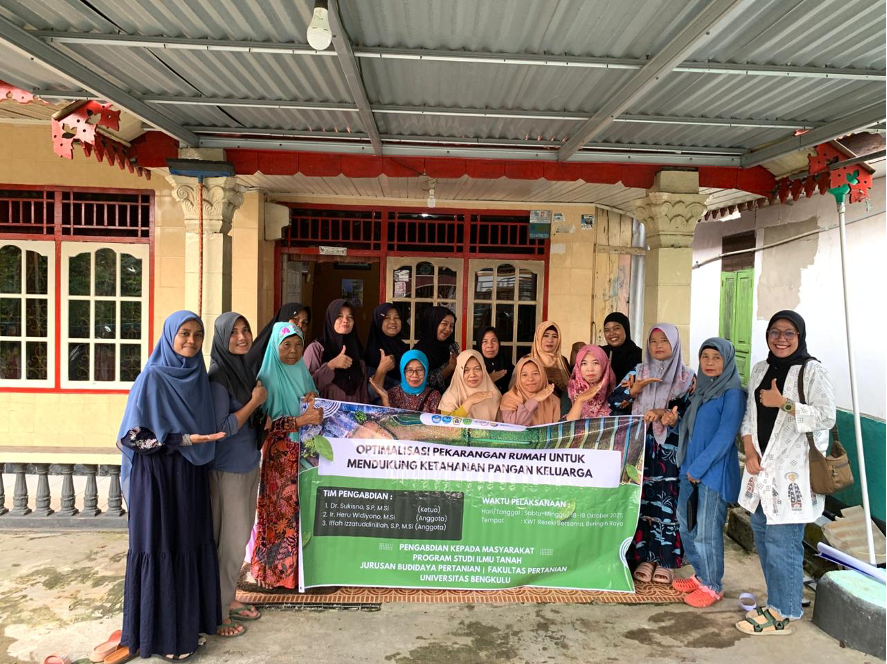Optimising Home Yards to Support Family Food Security
Bengkulu, October 25, 2025 — A team of lecturers from the Faculty of Agriculture, University of Bengkulu, led by Dr Sukisno., S.P., M.Si, conducted a community service activity titled “Optimising Home Yards to Support Family Food Security” in Beringin Raya Village, Bengkulu City.
This activity is part of Bengkulu University’s commitment to supporting government programs related to food self-sufficiency and sustainable environmental management. Through this activity, the community—especially Women Farmers Groups (KWT)—is encouraged to utilise their yards productively by growing vegetables and herbs based on organic farming systems.
According to Iffah Izzatuddinillah, S.P., M.Si., home yards have great potential as a source of independent food if appropriately managed. “Small land is not an obstacle to production. With simple techniques such as vertical farming, hydroponics, and the use of organic household fertilisers, families can meet their daily vegetable needs while saving money,” he explained.
The activity began with a socialisation of sustainable yard utilisation, followed by demonstrations on creating organic growing media, making liquid fertiliser from kitchen waste, and planting fast-growing vegetables such as kale, mustard greens, chillies, and celery. The participants, mostly homemakers and members of the KWT (Farmers’ Group) (Women’s Group), were enthusiastic about participating in the entire series of activities.
In addition to providing technical training, the community service team also introduced the concept of a circular household economy, where organic waste such as fruit and vegetable peels can be processed into fertiliser, creating an efficient and environmentally friendly home farming system.
Evaluation showed that over 85% of participants understood the importance of optimising yards for family food security, and 90% committed to growing vegetables at home after participating. Some participants planned to form small groups to develop “Family Food Gardens” as a sustainable movement in their neighbourhoods.
This program is expected to become a model for environmentally-based community empowerment that can increase food availability, strengthen household economic resilience, and create a greener and healthier environment.
“Through this activity, we want to raise awareness that food security starts at home. By utilising their yards, communities not only contribute to family food security but also to environmental sustainability,” added Iffah Izzatuddinillah, S.P., M.Si.
This activity was made possible with the support of the Faculty of Agriculture, the University of Bengkulu, the Beringin Raya Village Government, and the active participation of the local community. This collaboration demonstrates higher education institutions’ role in realising food security and sustainable community empowerment.
